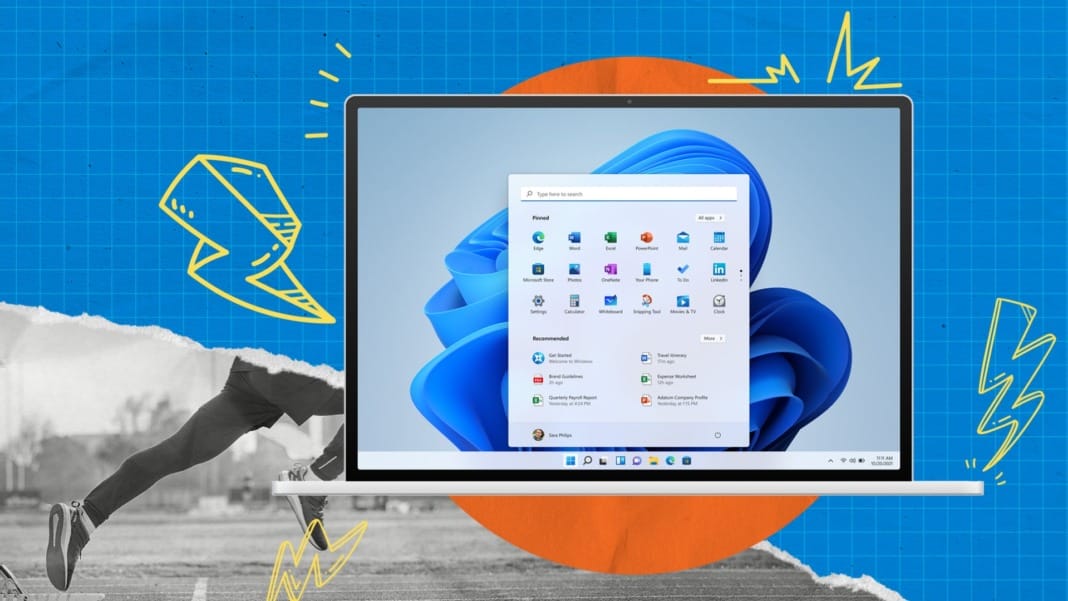Microsoft has released a major update for Windows 11, version 24H2, which significantly improves how the operating system updates. This latest version, which began rolling out earlier this month, is designed to streamline the update process, making it faster and more efficient while using less of your computer’s processing power. With a range of new optimisations, Windows 11 version 24H2 promises to save time and reduce CPU load for users, especially when it comes to routine monthly updates.
Improved update speed and lower CPU usage
With version 24H2, Microsoft has focused on speeding up the installation of monthly updates, reducing both the time it takes to install and the system resources required. Updates in Windows 11 now use several new techniques to enhance speed and efficiency. These include parallel processing of update components, which allows multiple parts of the update to be installed simultaneously, making the process faster overall. Additionally, the update system now better uses your computer’s memory, and a new cache optimisation system has been introduced to ensure updates run smoothly.
These advancements make a noticeable difference in the speed of monthly updates and resource demands. Microsoft reports that installation times for updates in version 24H2 are up to 45 per cent faster, while CPU usage during updates has been reduced by around 25 per cent. For users, updates should have a much smaller impact on system performance, with less time waiting for installations to complete. Restart times have also improved by close to 40 per cent on some systems, meaning your PC will be up and running again faster after an update.
To support these improvements, Microsoft has compared the performance of version 24H2 against older versions of Windows 11, including versions 22H2 and 23H2. Tests were conducted on virtual machines, and the 24H2 version consistently showed quicker update times and lower CPU usage, demonstrating the benefits users can expect from the new system.
Smaller update sizes and fewer downloads
In addition to speeding up updates, Microsoft has worked to reduce the size of each update file, making downloads quicker and less taxing on network data limits. In version 24H2, Microsoft has introduced a method allowing Windows 11 to skip downloading certain built-in apps if the latest versions are installed on your system. This adjustment has reduced the size of feature updates by around 200MB, allowing for quicker downloads and less storage space used.
Microsoft Edge, the default browser in Windows 11, is also included in these new, streamlined updates. If you already have the latest version of Edge installed, the update system will skip downloading it again, saving additional data. “For Windows 11, version 24H2, we extended this design to include Microsoft Edge, saving approximately 200MB for some endpoints,” said Steve DiAcetis, a member of the Windows fundamentals team at Microsoft.
By reducing the overall size of updates and using resources more efficiently, Microsoft aims to make Windows 11 a smoother, faster experience. The changes in version 24H2 show a commitment to addressing the feedback from users who want updates that are less disruptive to their workflow and less demanding on their devices.
What you need to know
For those already on Windows 11, the 24H2 update is available through the standard Windows Update process and should install automatically as part of Microsoft’s monthly updates. If you don’t have automatic updates enabled, you can manually check for updates by going to Settings > Windows Update.
As Microsoft continues to improve the Windows 11 experience, updates like version 24H2 are setting a new standard for speed and efficiency. With faster installations, reduced CPU usage, and smaller downloads, this latest update makes it easier to keep your system secure and up-to-date without disrupting your day-to-day activities.





